Team members

Iva Peša
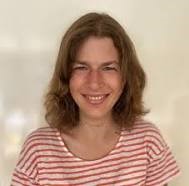
My name is Iva Peša and I am an Assistant Professor in Contemporary History at the University of Groningen. I am the Principal Investigator of the AFREXTRACT project. Apart from overseeing the project as a whole, I am responsible for the Zambian Copperbelt sub-project.
I started doing research in Zambia 15 years ago. During this period, I spent 2,5 years in Zambia (mainly in Mwinilunga, Kitwe, Ndola, and Mufulira), visiting various archives, conducting oral history interviews, and learning from people’s stories about the past. While I am thrilled that this project will allow me to continue this work, I am also very excited about the opportunity to learn about Johannesburg and the Niger Delta.
The AFREXTRACT project expands my methodological toolkit. The project will not only conduct numerous interviews to understand people’s lived experiences of environmental transformation, we will also work with literature and music. Taking cultural production and ethnography seriously, we hope to merge social, cultural, and environmental histories of resource extraction in Africa.
Please feel free to get in touch if you would like to learn more about the project, or if you would like to collaborate in any way. ( https://www.rug.nl/staff/i.pesa/ )
Tholithemba Lorenzo Ndaba
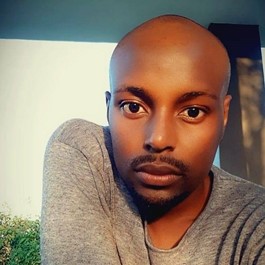
Hello, I'm Tholithemba Lorenzo Ndaba, a Ph.D. researcher in the AFREXTRACT project, focusing on ‘Environmental Histories of Resource Extraction in Johannesburg’. My research goes beyond conventional environmental history studies. I aim to shed light on the often overlooked social history of township residents. The impact of mining on the environment is a complex interplay with the social fabric of township life, illustrating a narrative of environmental changes and marginalisation, where each aspect influences the other. My advocacy extends to environmental justice, emphasising that in Johannesburg, mining effects not only shape the landscape but also contribute significantly to township marginalisation. It is a symbiotic relationship, a dance of inequality, in essence.
In my Sociology master's studies at the University of Johannesburg, I began delving into mining’s societal impacts. This started with contrasting new houses with what I saw as a prematurely rehabilitated mine dump in Fleurhof, Johannesburg West, sparking my passion for mining issues and their impact on marginalised communities.
Beyond my Ph.D. research in Johannesburg, I am deeply invested in African Studies, African Anthropocene, Black History, Township Planning/Development Studies and Environmental and Housing Rights, particularly in the context of South Africa. My commitment extends to unravelling the intricate tapestry of societal dynamics and advocating for justice. My goal post-Ph.D. is to channel my expertise towards initiatives that improve lives, whether in academia or beyond. I am committed to creating positive change and contributing to solutions that benefit individuals and communities.
Jabulani Shaba
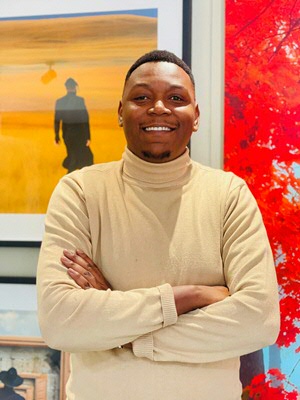
My name is Jabulani Shaba, I am a postdoctoral fellow in the AFREXTRACT project, researching the Political Ecology of Extraction. I obtained my PhD in History at Stellenbosch University, South Africa in 2023. My doctoral thesis is titled, ‘Women’s Mining Worlds: A socio-environmental history of women in Artisanal Gold Mining in Zimbabwe with specific reference to Mazowe District c. 1932 to 2021.’ For my doctoral research, I conducted extensive ethnographic fieldwork and gained key insights into people’s lives in mining localities. I not only honed my skills in research within the often explosive and volatile mining spaces, but I gained a deeper understanding into how people lived and interacted with the state, environmental NGOs, global clients, as well as among themselves. The thesis provided me with an opportunity to understand the complex dynamics of oral history, ethnography and how we can use these in nuancing our understanding of African history and more specifically how we can rethink histories of mining in Sub-Saharan Africa.
I strongly believe that the lived experiences of people in mining communities warrant renewed and energetic scholarly attention on resource politics in Africa. The AFREXTRACT project comes at an opportune time to question, challenge and contribute to a better way of understanding the socio-environmental history of mining pollution in Africa. I am interested in learning more about environmental transformation in localities of resource extraction and how the three cases studies of South Africa, Nigeria and Zambia will provide new perspectives and expand scholarship on resource extraction in Sub-Saharan Africa.
My research interests are in resource extraction, environment and society.
Anthony Chukwudumebi Obute
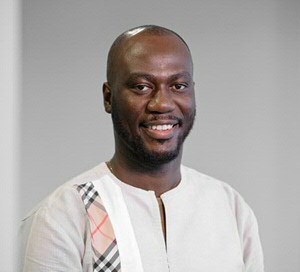
My name is Anthony Chukwudumebi Obute, and I am a postdoctoral fellow in the AFREXTRACT project. My scholarship focuses on literary and cultural traditions which underpin the history of resource extraction and environmental changes in the Global South. I completed my doctoral programme at the University of Tübingen, Germany. My dissertation pieced together the nexus between the Niger and the Mississippi delta regions of Nigeria and America respectively, through the chequered histories of slavery, colonialism, and petrocapitalism. While foregrounding the intertwined afterlife of slavery across these spaces, it demonstrates how the dire environmental conditions of the Niger Delta animate the biopolitical ecosystem of the Cancer Alley of Louisiana through oil extraction and refinement.
The AFREXTRACT project provides a fascinating opportunity to comparatively expand the history of resource extraction and environmental changes on the African continent, particularly in Nigeria, Zambia, and South Africa. These spaces are instructively watermarked by a nuanced memory of (settler) imperialism. In this context, my research explores the literary rendition of this history of environmental transformation, the human response thereof, and the possibility of life in the ashes of extractive modernity. I am the co-editor of the volume, Mediascapes of Ruined Geographies in the Global South (2023) and my research interests include Environmental Humanities; Petrol-culture and Resource Extraction; African American Literatures and Cultures; Postcolonialism and the Global South.
Jackson Tamunosaki Jack

My name is Jackson Tamunosaki Jack, a postdoctoral fellow in the AFREXTRACT project, researching the toxic environmental legacies of crude oil extraction and the localised responses they elicit across Africa. Oil extraction on the continent has been associated with some of the worst forms of environmental pollution globally, with Nigeria’s Niger Delta region, where my research is focused, being a stark example. My doctoral dissertation at the University of Port Harcourt, Nigeria, examined the livelihood responses and adaptive capacity of households in oil drilling localities of the Niger Delta. My positionality as an Ijaw native of the Niger Delta, being born and bred in Port Harcourt, Nigeria’s oil capital, yet ironically its most polluted ’soot city’, enabled me to conduct ethnographic research in these localities, where I drew deeper and nuanced insights into the lived experiences and varied livelihood responses of fishing and farming communities in the region.
Beyond livelihood adaptations, I am passionate about unearthing and understanding the compelling and divergent localised social, political, and non-material responses to negative environmental transformations in Africa. The AFREXTRACT project provides me the invaluable opportunity to expand my research beyond the Niger Delta. It also allows me to foreground the myriad ways people in various extractive localities across the continent interact with, live with, and respond to environmental pollution. I am particularly interested in learning from the comparative case studies of copper and gold mining in Zambia and South Africa, broadening my perspectives on the extractive lifeworlds and the political ecology of resource extraction in Africa.
Ylva Axelsson
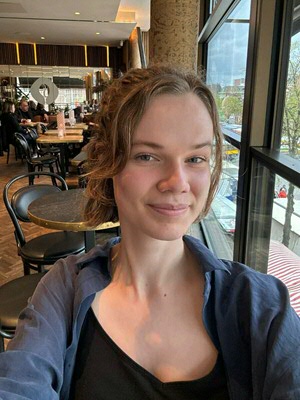
My name is Ylva Axelsson, and I am a student assistant for AFREXTRACT. I am currently in my final year of the BA History programme here in Groningen, which I am combining with a minor in International Relations. Before starting my degree I only had a vague understanding of what environmental history could be, but in the past years I have come to realize what an interesting–and vital–perspective it brings. My current research interests mainly concern the interplay between local communities and global environmental concerns, and I plan to write my thesis on a topic related to this. I am very much looking forward to working with AFREXTRACT, and all the new insights I am sure it will bring. This project has already broadened my horizons for what environmental history can encompass, and there is certainly more to come!
Hannah Heath

My name is Hannah Heath and I am a student-assistant for AFREXTRACT. I have completed a BA in History, including two years dedicated to studying Italian language and culture. During my bachelor studies, I discovered my interests for environmental history. After first having encountered Medieval environmental history, I turned to contemporary history, focusing mostly on the relationship between indigenous communities and their relationship with their land in cases of ecotourism and resource-extractive industries on the African continent. I have written my thesis on the topic of environmentalist opposition against the petroleum industry in the Nigerian Niger Delta. I am very excited to work with AFREXTRACT and to learn more about the environmental histories of the Zambian Copperbelt, Johannesburg and the Niger Delta.
Advisory board members
Professor James Ogude (University of Pretoria)
Professor John Bwalya (Copperbelt University)
Professor Obari Gomba (University of Port Harcourt)
Professor Corey Ross (University of Birmingham)
Emeritus Professor Joan Martínez-Alier (ICTA-UAB Barcelona)
Emeritus Professor William Beinart (University of Oxford)
| Last modified: | 09 December 2024 3.54 p.m. |
